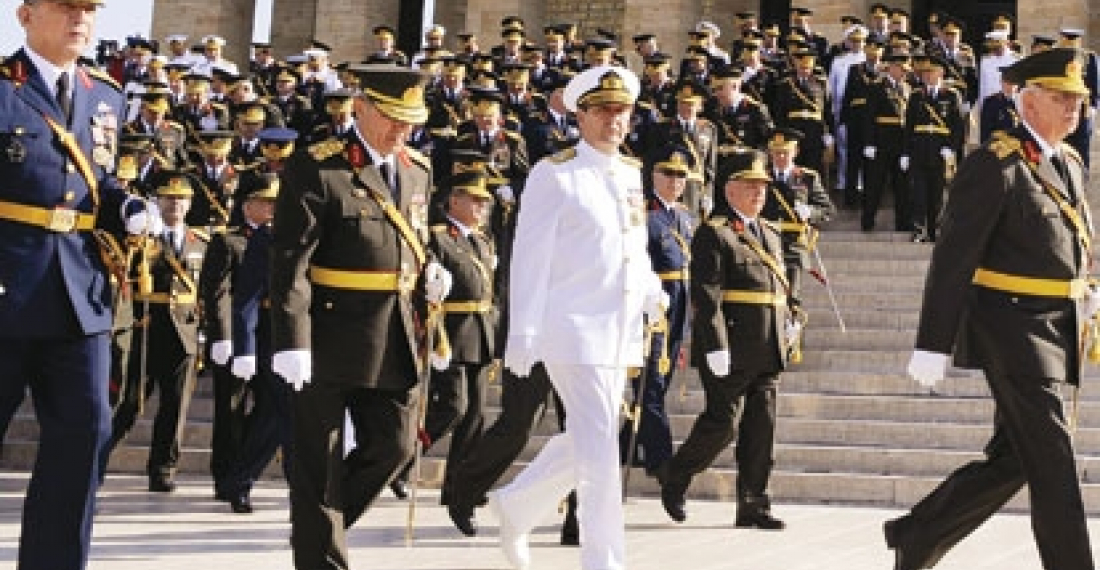The Turkish Government has appointed General Necdet Ozel the Head of the Gendarmerie - a para military force which constitutes the fourth arm of the Turkish Armend Forces - as the Head of Land Forces and Acting Chief of Staff. The appointment was announced after General Ozel met Prime Minister Erdogan on Friday evening, after which the two men also visited the Turkish President Abdulla Gul.
Earlier in the day the Cheif of Staff of the Armed Forces and the Heads of the Army Navy and Air Force announced that they had taken early retirement.
There has been tension between the Armed Forces and the Government in Turkey after the government announced that it had discovered a plan of a military coup against it, and that many officers in the Armed Forces were involved. A meeting of the Supreme Military Council scheduled to take place on Monday is due to discuss promotions in the Armed Forces and some of the people implicated in the coup were understood to have been recommended for promotion by the military command.
Hurriyet Daily news said that the "resignations immediately caused a state crisis". The pro government "Todays Zaman" said that "The resignation of so many top commanders for the first time ever in Turkey signals a deep rift with the government, which has been confident in confronting a military that once held sway over Turkish political life. The arrests of high-ranking military officers would once have been unimaginable".
source: commonspace.eu newsroom
picture: courtesy of Hurriyet Daily News
(c) commonspace.eu







